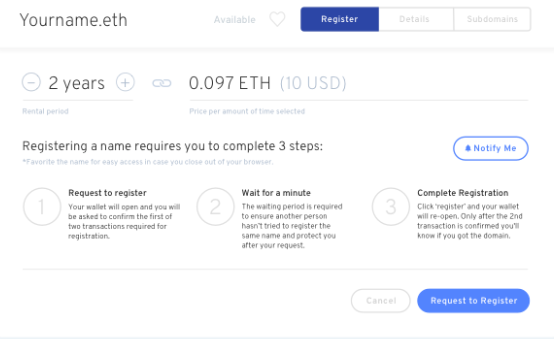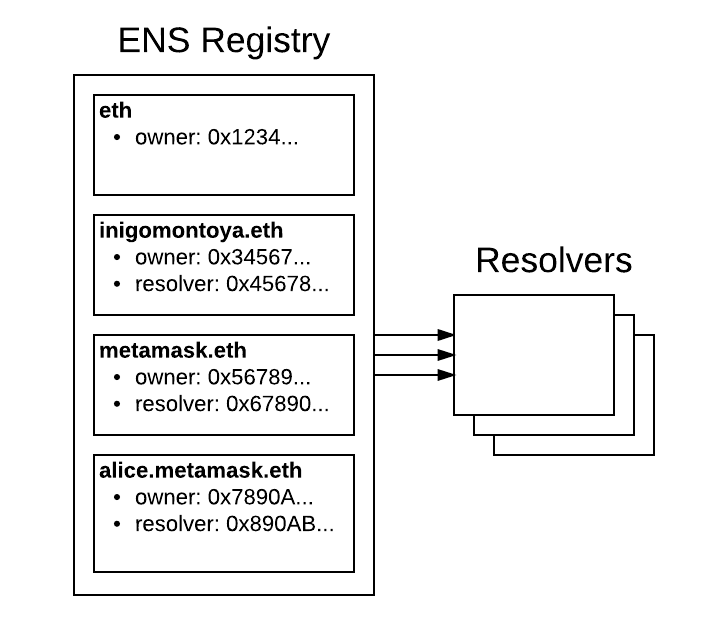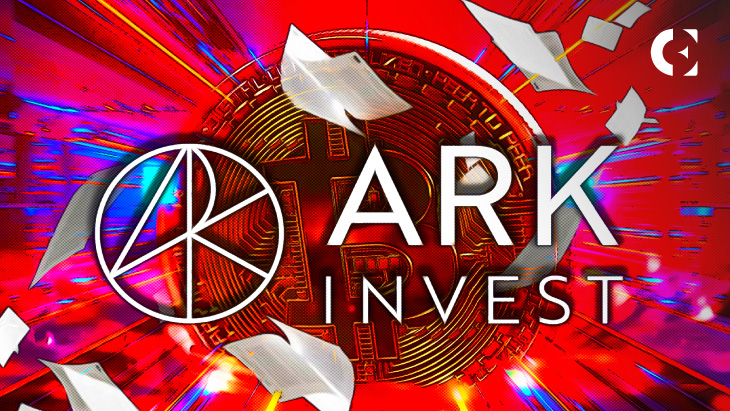Crypto wallet addresses are lengthy sequences of letters and numbers (e.g., 1GVLdTkcD8DKPA18sdiZs6Yz8Yz8qUjmhY) specifically formatted for processors to read. As you can imagine, these lengthy addresses have resulted in misunderstanding and even the misappropriation of financial resources.
ENS, which stands for Ethereum Name Service, is a platform to simplify the cryptocurrency and decentralized financial experience by solving the problems brought by crypto wallet addresses.
It enables users to establish a single moniker that can be used across all their public addresses and decentralized website accounts. You will be given a single ENS domain, such as “Jai.eth,” on which you can receive any kind of cryptocurrency as well as NFTs.

How It Works
The Ethereum network serves as the foundation for ENS, which is built on top of smart contracts that are constantly improving. The formation of the ENS is dependent upon the cooperation of two separate smart contracts.
The first smart contract is an ENS registry, which stores information on all domain names registered using ENS. This information may be viewed by anybody who has access to the registry.
The first smart contract includes three very significant bits of information, namely the specifics of the domain, the router for the domain, and the caching time for each record that falls under the domain in question.
The resolver is the second kind of smart contract, and its purpose is to convert human-readable domain names into machine-readable IP addresses and vice versa. The second smart contract does the matching between each domain and the user, website, or address that corresponds to it.

Cost
The cost is currently set at $5 per year for any domain name with more than five characters and less than 63 characters. After all of the fees have been paid and the transactions have been processed, the domain name that will be connected to your websites, cryptocurrency wallets, subdomains, and so on will be made available to you.
Users are scrambling to get their unique ENS domain name to keep up with the ever-growing popularity of ENS. The platform not only offers domain names with the .eth extension but also .com, .org, and .io extensions, in addition to many more.
Why ENS?
Because it was designed specifically for Ethereum smart contracts and was built from the ground up as part of the Ethereum ecosystem, the Ethereum Name Service (ENS) does not have the same vulnerabilities that plague DNS. A centralized server is used to keep the DNS records of all of the domains and names. This indicates that they are susceptible to being hacked. ENS, however, is heavily protected.
Furthermore, the ENS makes names and addresses more open and simpler to interact with. At the moment, the major goal of ENS is to simplify the process of reading and exchanging cryptographic addresses between individuals and programs, as well as to make Web3 more easily consumable. As Web3 continues to develop, it is anticipated that more protocols will be developed around the ENS.
The ENS Token
ENS is an ERC-20 token that has a market value of $1.5 billion at press time. It is trading at $15 and ranks as the one hundred and twenty-first biggest cryptocurrency. The total number of coins that may ever be issued is capped at 100 million, although only 25.7 million are now in circulation.
Because ENS is an open-source technology that is totally decentralized, it is not administered by a conventional corporation hierarchy. The ENS network functions as a DAO, which stands for decentralized autonomous organization, and this is what brings us to the ENS coin.
The ENS token is both a utility token and a governance token for the ENS decentralized autonomous organization (DAO), and it is used to make ideas and cast votes to have an impact on how the protocol will evolve in the future. Anyone who has ENS may participate in the ENS DAO and cast their votes for various proposals.
Future of ENS
The effect of ENS may be observed to its greatest extent in the cryptocurrency market. It has simplified the process of trading cryptocurrency and maintaining cryptocurrency holdings in digital wallets for everyone.
It has proven to be an important cornerstone in the process of developing and implementing Web 3.0 and applications that are connected to it.
The world of cryptocurrencies is quite technically advanced, and its fundamental premise is not entirely simple to understand. In particular, for people who have only just joined and are interested in gaining more knowledge about cryptocurrencies.
There are a lot of numbers, coded addresses, and other types of machine-readable public addresses involved with cryptocurrency, all of which are inconvenient and difficult to remember.
It is because of this that ENS was developed, and its implementation has made the crypto world’s operations far more straightforward. It makes it possible for consumers to engage with material that is readable by machines in the form of straightforward connections that are both shorter and simpler to recall, as well as reduces the risks of loss of funds.
Because it airdropped 25% of the total token supply at the debut of the ENS DAO on November 9, 2021, it has also drawn substantial interest in the protocol. Only one day following the introduction of the ENS Decentralized Autonomous Organization (DAO), the ENS token’s market valuation went through the $1 billion mark on November 10. This was when the ENS token immediately acquired popularity among investors.
Furthermore, ENS made it possible for websites with any of the more than 1,300 top-level domain names, such as those ending in.com,.org, or.edu, to integrate themselves directly with ENS. Therefore, if you own jai.com, you can connect it directly to Jai.eth so that people may browse content and transfer money to the same exact location.
Bottomline
In the realm of decentralized apps and platforms, ENS has been establishing a name for itself by revolutionizing how users may connect with the blockchain in terms of accessibility and convenience.
ENS is going to take the place of DNS and has the potential to become a whole new means for us to navigate our way around the internet, taking us to various websites, digital wallets, smart contracts, and a great deal more.
As ENS continues to gain in popularity, it will almost certainly emerge as one of the most crucial aspects of Web 3.0 in the not-too-distant future. Since the airdrop of ENS tokens, there has been a surge in overall user interest in ENS around the globe.
Learn More About Crypto, Blockchain, & Web3:
- What Is Ethereum: Complete Guide to the 2nd Largest Blockchain Project
- Ethereum vs Bitcoin: Use Cases, Technical Differences, Scaling Issues
- What Is DeFi? Let’s Understand Decentralized Finance
- Web3 vs Web2 : What’s the Difference?
Disclaimer: The information presented in this article is for informational and educational purposes only. The article does not constitute financial advice or advice of any kind. Coin Edition is not responsible for any losses incurred as a result of the utilization of content, products, or services mentioned. Readers are advised to exercise caution before taking any action related to the company.










